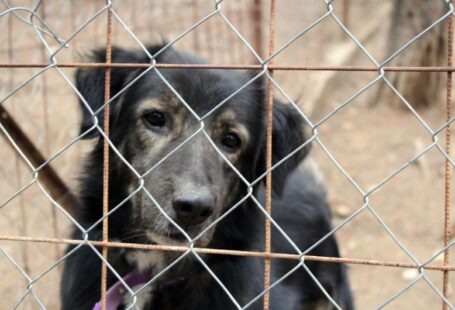**Dental Hygiene: How to Care for Your Dog’s Teeth**
Our furry companions rely on us to take care of their overall well-being, and one crucial aspect of their health that often gets overlooked is dental hygiene. Just like humans, dogs require regular dental care to prevent oral health issues and maintain a healthy mouth. Neglecting their teeth can lead to various dental problems, including gum disease, tooth decay, and bad breath. By implementing a few simple practices into your dog’s routine, you can help keep their teeth clean and healthy for years to come.
**Regular Brushing is Key**
One of the most effective ways to care for your dog’s teeth is by regularly brushing them. Just like us, dogs need to have their teeth brushed to remove plaque and prevent tartar buildup. Use a toothbrush specifically designed for dogs, along with dog-friendly toothpaste, as human toothpaste can be harmful if ingested. Start by getting your dog used to having their teeth touched and gradually introduce the toothbrush and toothpaste. Aim to brush your dog’s teeth at least 2-3 times a week to maintain their oral health.
**Chew Toys and Dental Treats**
Chew toys and dental treats are not only great for keeping your dog entertained but also for promoting good dental health. Chewing on toys helps to remove plaque and tartar buildup, keeping their teeth clean and healthy. Opt for toys that are specifically designed to promote dental health, such as those with ridges or textures that help to clean teeth. Dental treats are also beneficial as they are formulated to help reduce plaque and freshen your dog’s breath. Incorporating chew toys and dental treats into your dog’s routine can be an enjoyable way to improve their dental hygiene.
**Regular Dental Check-ups**
Just like humans, dogs also benefit from regular dental check-ups with their veterinarian. Your vet can examine your dog’s teeth and gums for any signs of dental issues and provide professional cleanings if necessary. Regular check-ups can help catch dental problems early on and prevent them from progressing into more serious issues. Your vet can also provide guidance on maintaining your dog’s dental hygiene at home and recommend any specific products or treatments that may benefit your dog’s oral health.
**Healthy Diet for Healthy Teeth**
A nutritious diet plays a significant role in your dog’s overall health, including their dental health. Feeding your dog high-quality food that is formulated to support dental health can help prevent plaque and tartar buildup. Avoid sugary treats and snacks that can contribute to tooth decay and opt for dental-friendly treats instead. Additionally, providing your dog with crunchy fruits and vegetables, such as carrots or apples, can help naturally clean their teeth and freshen their breath.
**The Importance of Water**
Ensuring that your dog has access to clean, fresh water at all times is essential for their dental health. Water helps to wash away food particles and bacteria that can contribute to plaque buildup. Proper hydration also promotes saliva production, which plays a crucial role in maintaining oral health by helping to clean the teeth and neutralize acids in the mouth. Make sure to regularly change your dog’s water bowl and encourage them to drink an adequate amount of water throughout the day.
**Maintaining Your Dog’s Dental Health**
Taking care of your dog’s teeth is an important aspect of their overall well-being. By implementing regular brushing, providing chew toys and dental treats, scheduling regular dental check-ups, feeding a healthy diet, and ensuring proper hydration, you can help keep your dog’s teeth clean and healthy. Prioritizing your dog’s dental hygiene can prevent oral health issues and contribute to their overall happiness and well-being. Start incorporating these practices into your dog’s routine today to promote a lifetime of good dental health.





